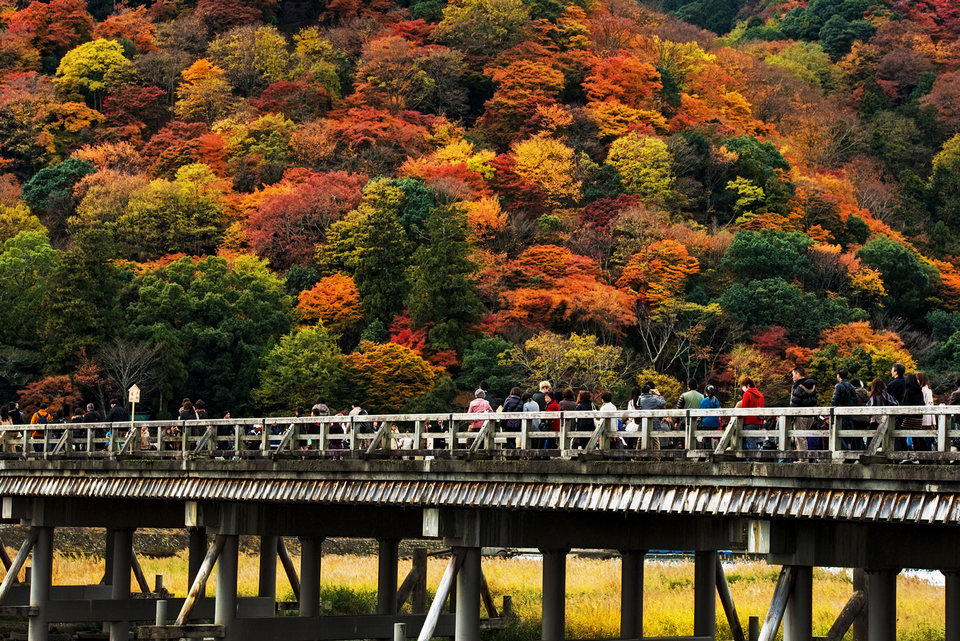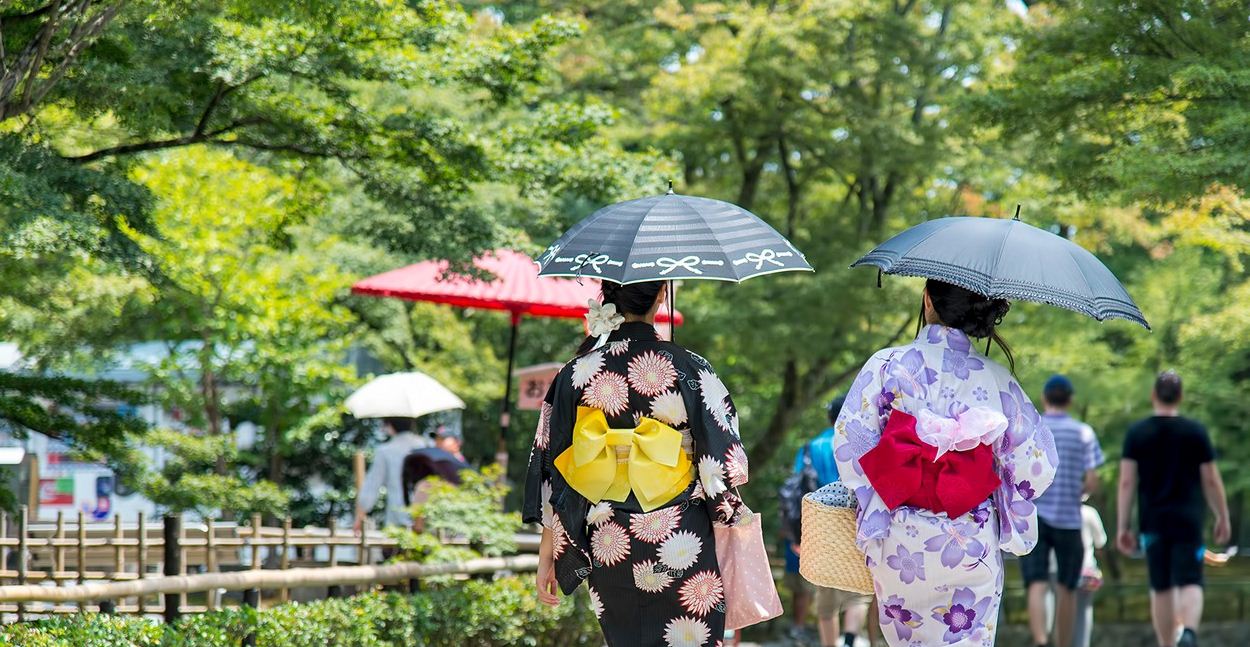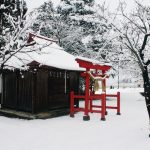Best eats Kyoto — 8 best food to eat in Kyoto, food must try in Kyoto & must eat food in Kyoto
Geisha, the oldest Kimono shop, Maiko, Aoi festival … have you heard of these names? If not, we would like to reveal, these are the interesting things originating from that Kyoto ^^. If you ask me to choose a destination when traveling to Japan for the first time, I will definitely choose Kyoto! Being the ancient capital of Japan, Kyoto has a very rich and long history! Not to mention that if you want to learn about the best Japanese culture, you can only go to Kyoto. However, this time I want to share privately one thing that I really love in this ancient capital: The food. So, where should you eat in Kyoto and what should you eat in Kyoto? Let’s take a look at our recommended 7 best food in Kyoto (best eats Kyoto, best food to eat in Kyoto, best street food in Kyoto) and food must eat in Kyoto (must eat food in Kyoto, must eat in Kyoto), food must try in Kyoto (must-try food in Kyoto, Kyoto must-try food, food to eat in Kyoto, food to try in Kyoto, must-try food Kyoto), Kyoto famous food, Kyoto local food, traditional food in Kyoto
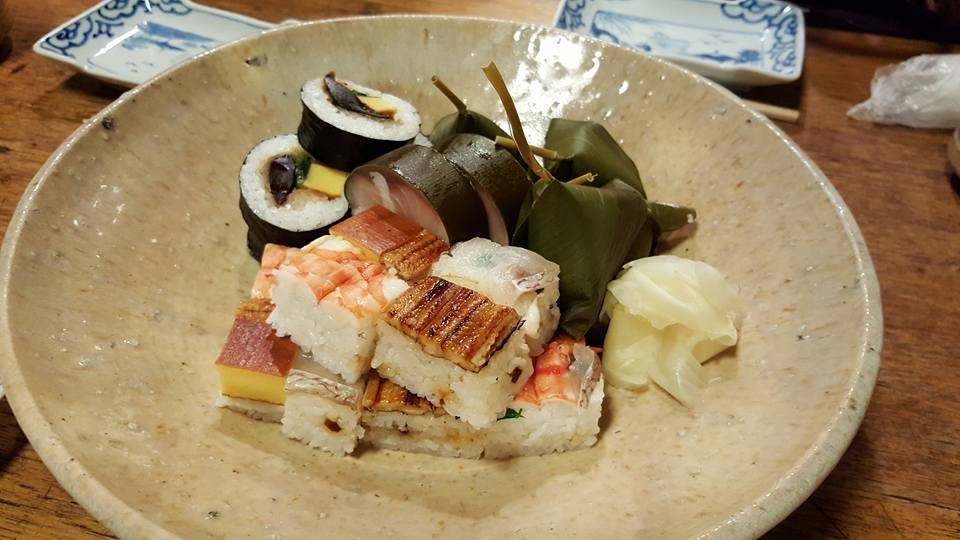
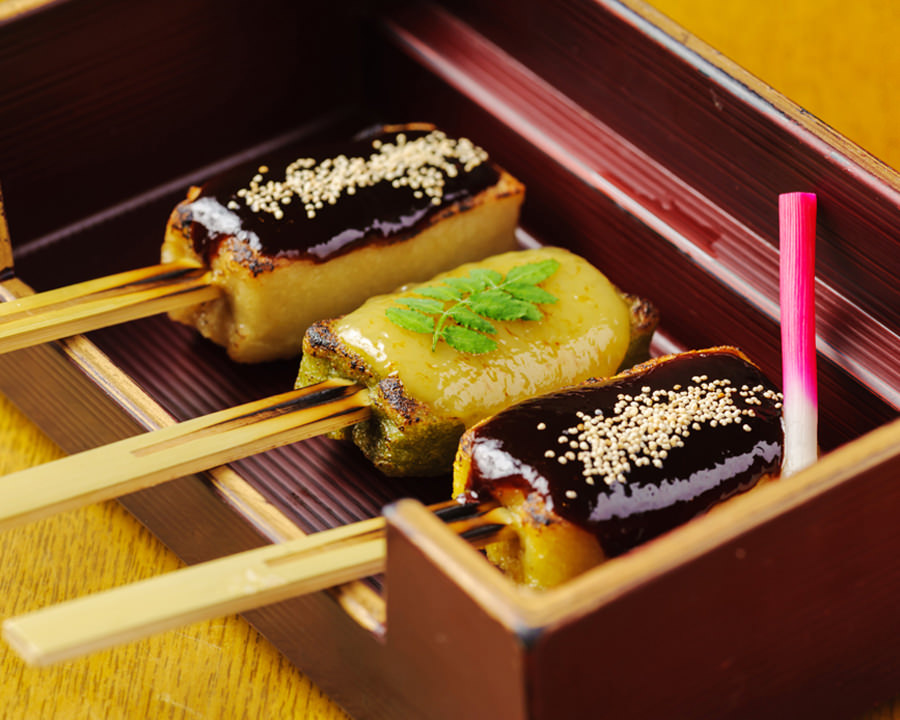
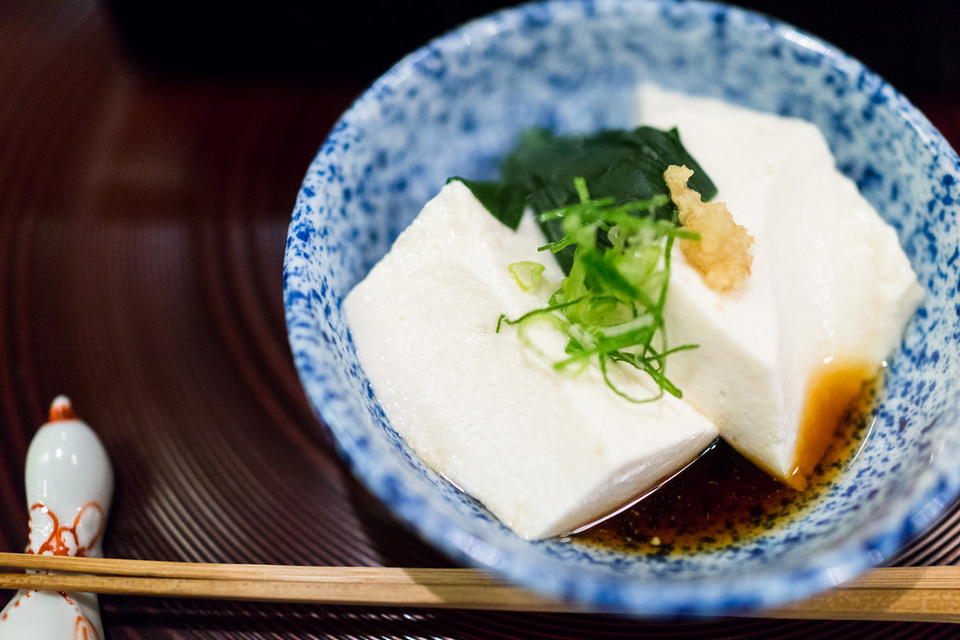
Kyoto is about 500 kilometers away from Tokyo, so taking the JR train (Shinkansen) is the most convenient option. Similarly to geographical distance, there are foods in Kyoto that cannot be found in Tokyo. Can you guess what they are?
Best eats Kyoto: Ramen
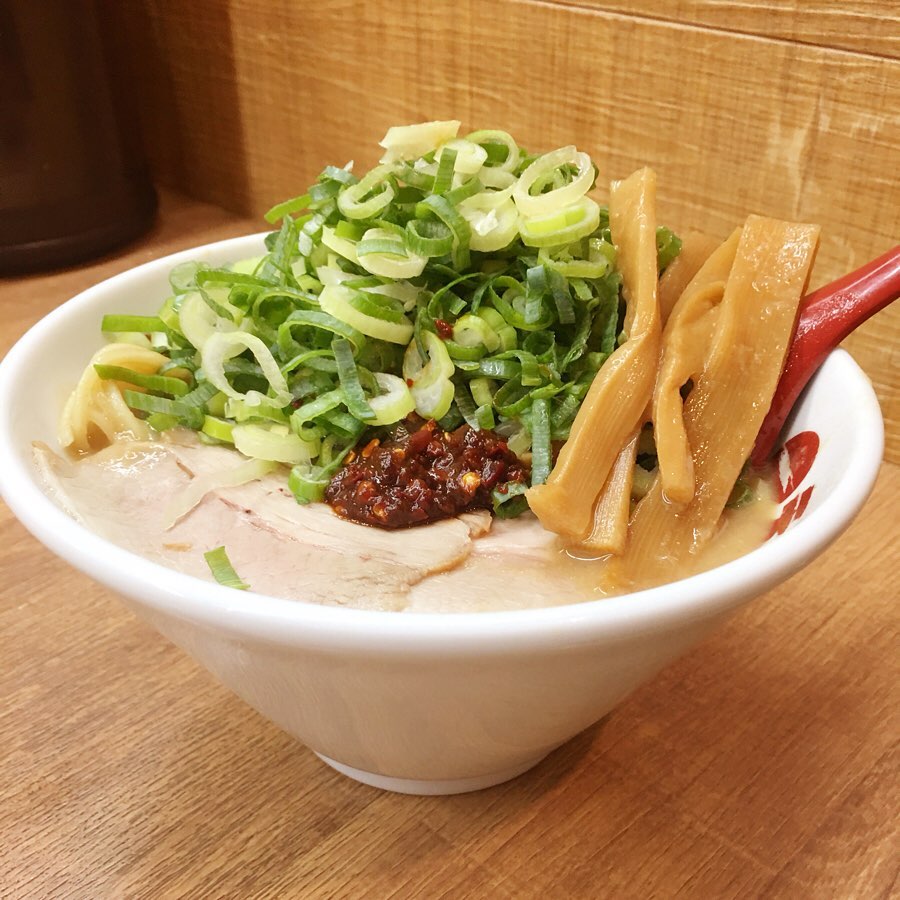
Ramen noodles are ubiquitous in Japan. However, each region has its own recipe for these noodles, offering distinct flavors that are not shared by other regions. Kyoto, too.
If you have the chance to visit Kyoto’s capital, don’t miss out on a bowl of traditional ramen noodles. Because Japanese people are known for their subtlety, meticulousness, and investment in every action, each bowl of ramen noodles delivered to customers meets these criteria as well.
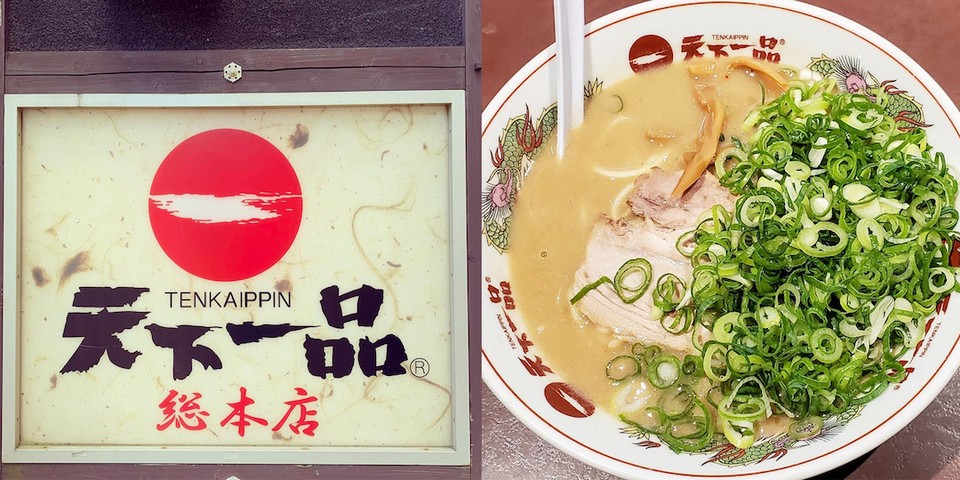
Tenkaippin, the name of a ramen restaurant chain, is probably the most well-known. This is a well-known brand for its signature ramen, thick and chewy noodles, and a broth stewed with chicken bones for many hours to produce a light, sweet, and pleasant flavor. I was told that the chef who prepares the noodles here had to strictly adhere to the bone stew time in order to make the “authentic” broth, as anything less or more hours resulted in failure. As one would expect from Japan!
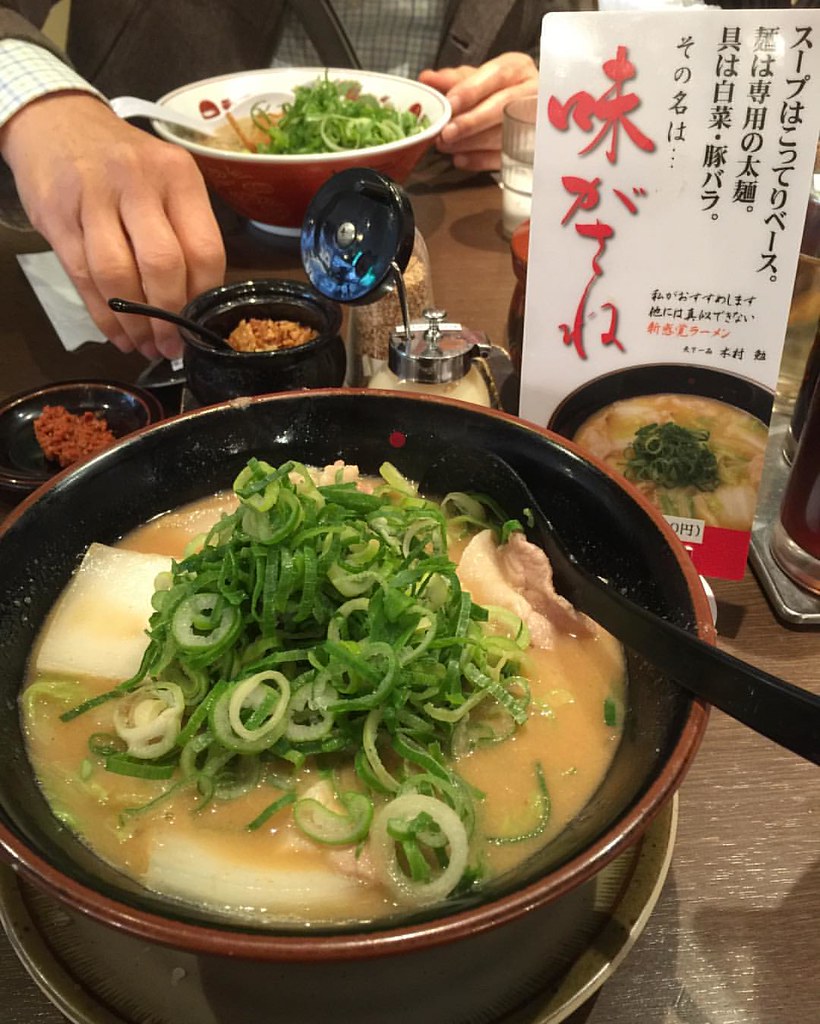

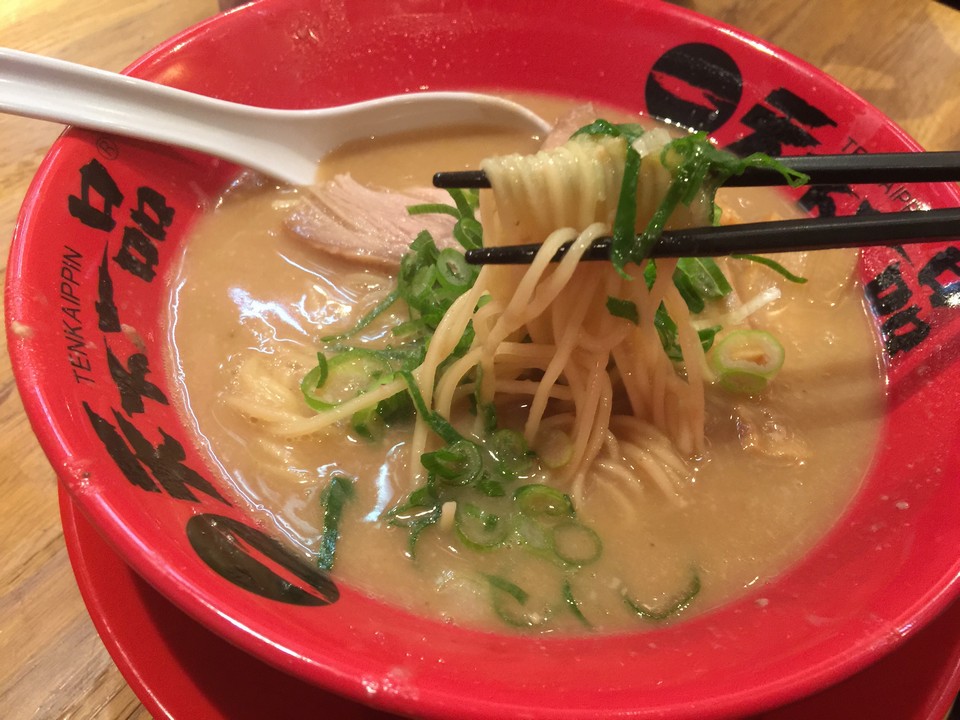
Tenkaippin Honten
Address: 94 Icijoji Tsukudacho Sakyo-ku | 1 Field, Maison Shirakawa, Kyoto 606-8175, Kyoto Prefecture
Hours: 11AM – 3AM)
Bonus for anyone who is a fan of divine ramen noodles, please try eating “fiery” noodles at Menbakaichidai (Menbaka Fire Ramen) restaurant once. This restaurant is not as famous as Tenkaippin, but personally, I like this restaurant more.
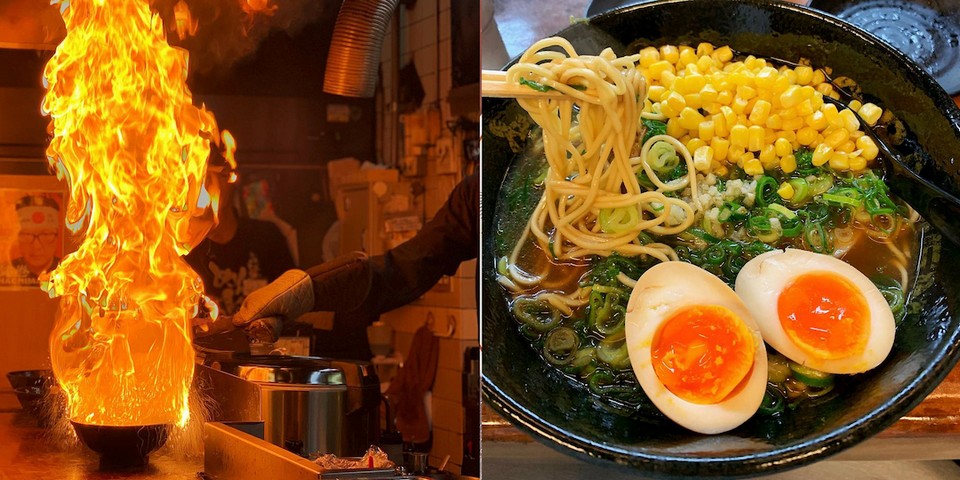
It’s dangerous to eat noodles here. After reserving a seat (you must do so in advance because the number of visitors is extremely high; no reservation means no seat! ), you must sit in the desired position. The chef will place the bowl of noodles in front of you, then use his expert hands to pour the fire into the bowl?!?! Fire, fire, and more fire!!! That is quite impressive.
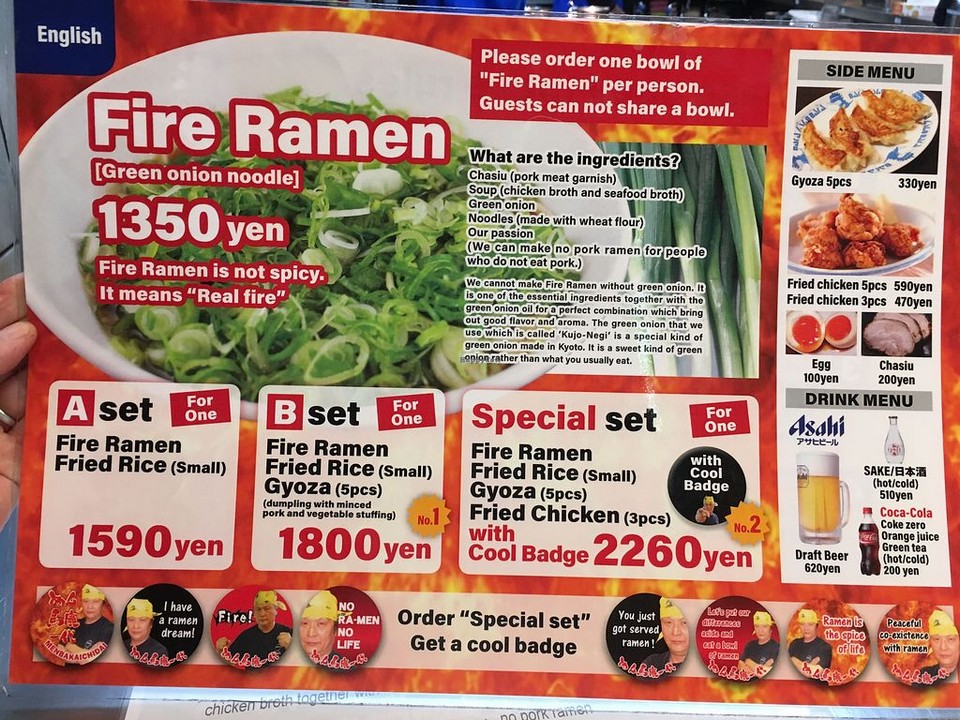
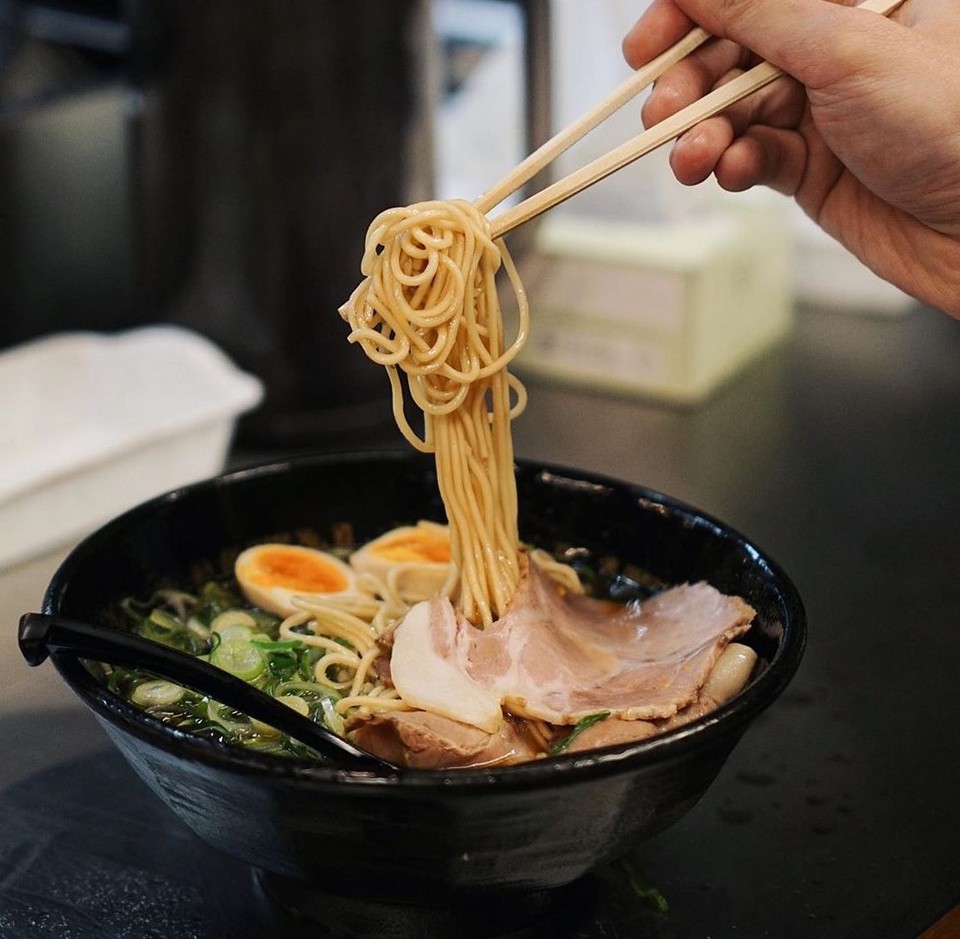
Believe it or not, the bowl of fiery noodles is like a circus show, but the food inside does not burn, but in return, the cheers and applause of the diners increase the joyment, exciting when enjoying =)))
Note 1: The bowl of noodles here has a lot of onions, it must be said that green onions fill all over the bowl because when adding them the fire will be burnt out more beautiful. Anyone who is anti scallions should consider!
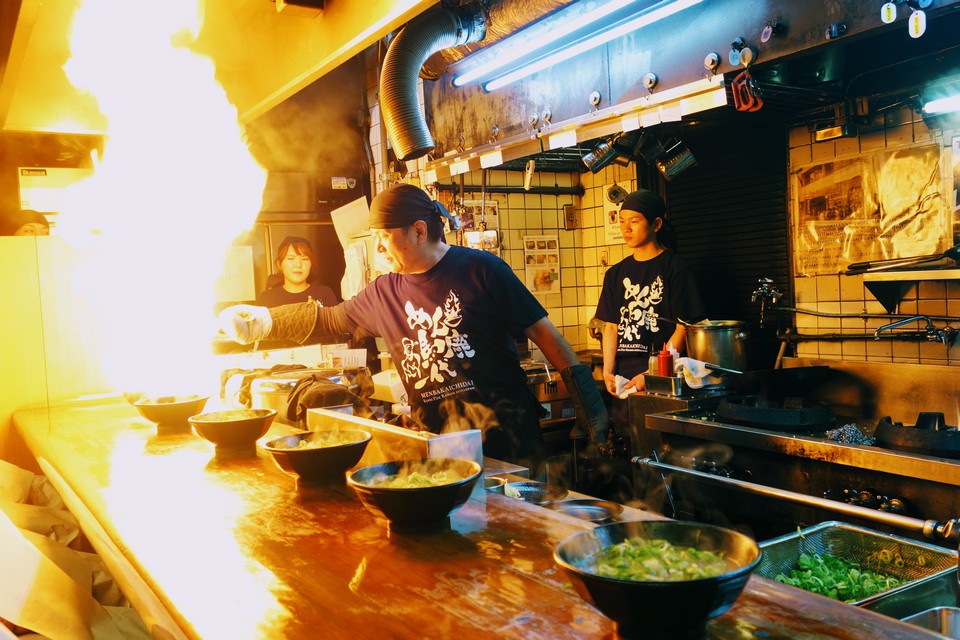
Note 2: When eating Menbakaichidai ramen, the female diners has to tie her hair high, neatly to avoid being scorched by the fire haha =)). In addition, when entering the restaurant, the waiters will put on you a large apron. It’s like in a haircut shop. These aprons will protect you from grease and accidental sparks :v :v :v
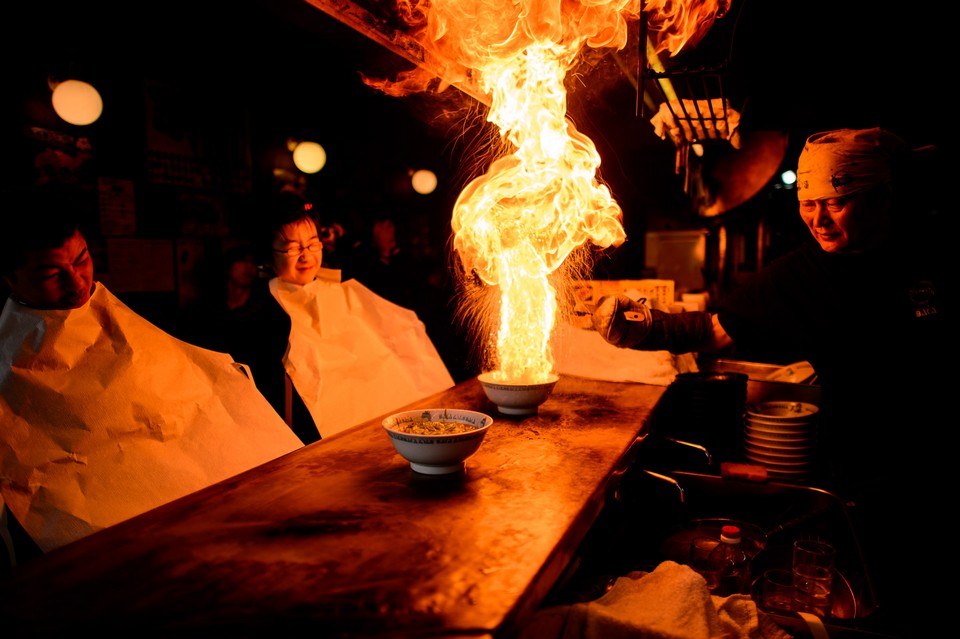
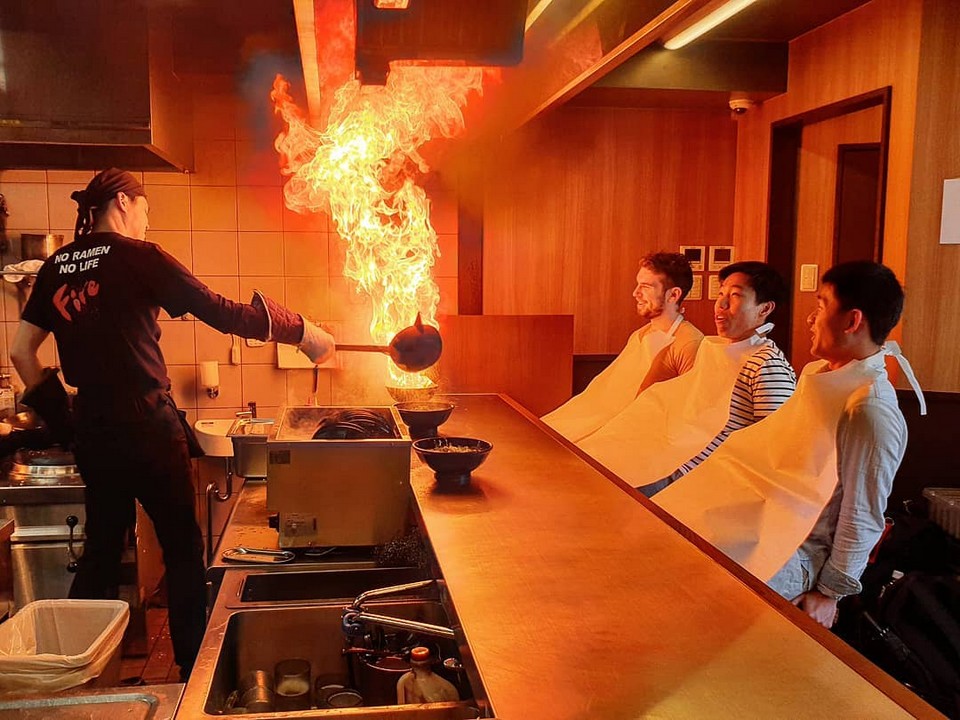
Very interesting, remember to eat <3 <3 <3
Menbaka Fire Ramen
Address: 757-2 Minamiiseyacho, Kamigyo Ward, Kyoto, 602-8153, Japan
Hours: 11AM–11PM
Best food in Kyoto: Soba
Ok, lost in the land of all types of noodles, you definitely have to try soba noodles in Kyoto too!
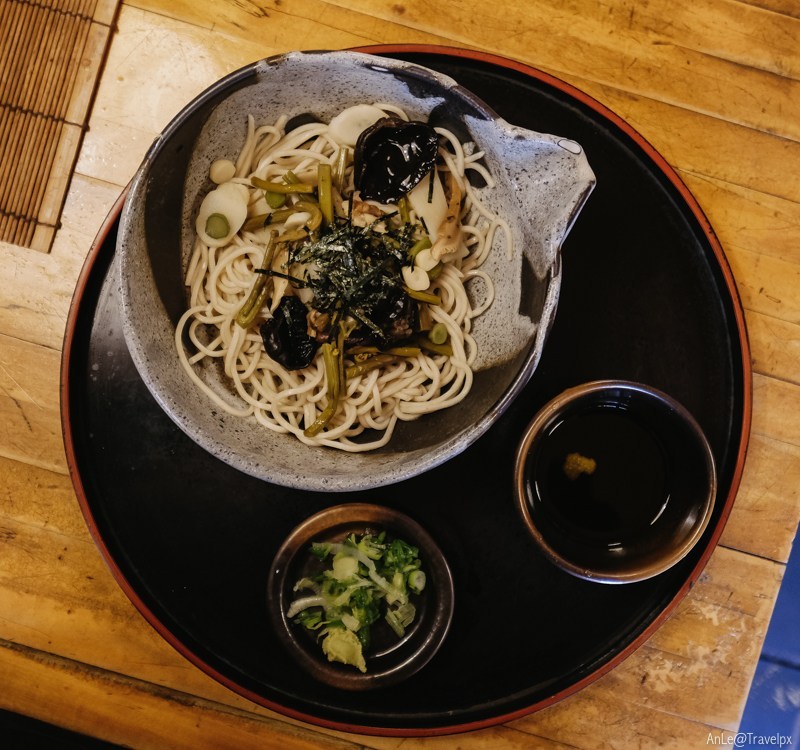
Also a traditional noodle dish, soba is very healthy and balanced because it is made from buckwheat, nutritious and easy to eat. Served with soba noodles often have tempura or sushi, all forming a quintessential dining set meal and the soul of the land of the rising sun.
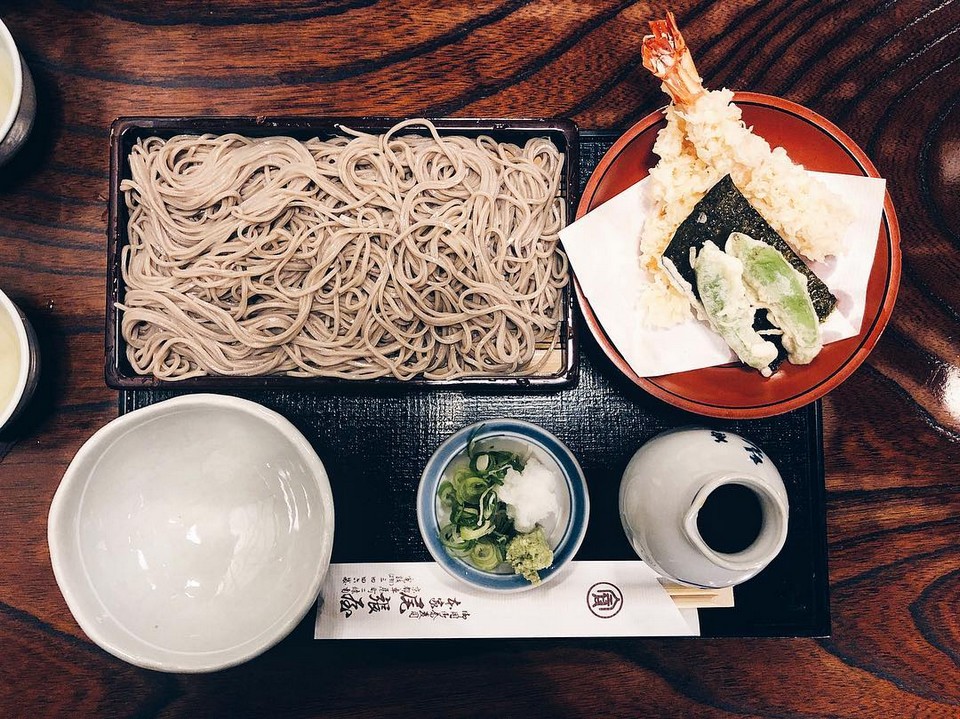
It is not difficult to find soba noodle shops across Japan, but to enjoy the oldest and most traditional flavor, it can only be in the capital of Kyoto. One of Kyoto’s most famous soba noodle shops is Honke Owariya, which receives the most reviews and 5 star ratings of the Japanese dinersy. So good!
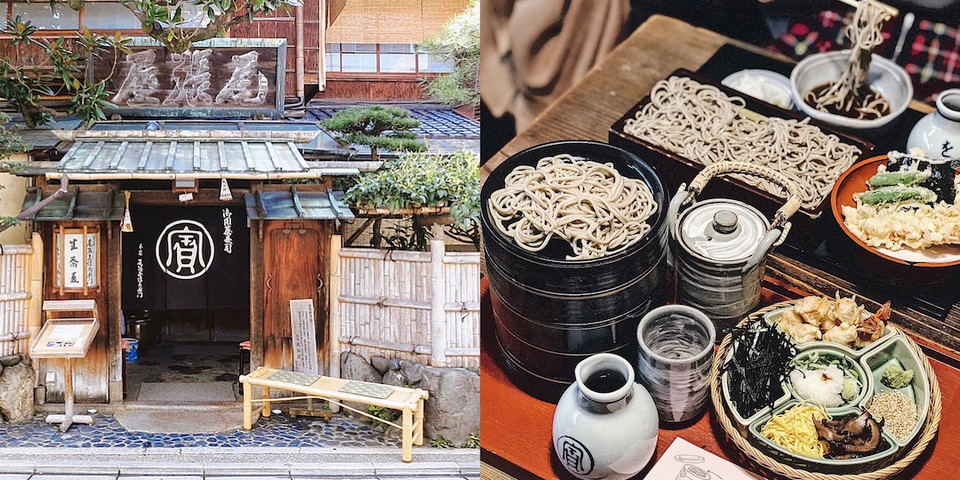
Each bowl of soba noodles will contain the following ingredients: eggs, seaweed, radish, onions, mushrooms… All of the ingredients are beneficial to the body and skin. So much love =))). Similarly to other types of noodles in Japan, the broth is still the most elaborate investment, meeting all noodle processing chefs’ highest quality standards.
Soba noodles can be eaten either hot or cold, and both are delicious. If you visit Kyoto in the fall, you will have the best bowl of noodles of the year because it is after the buckwheat harvest season.
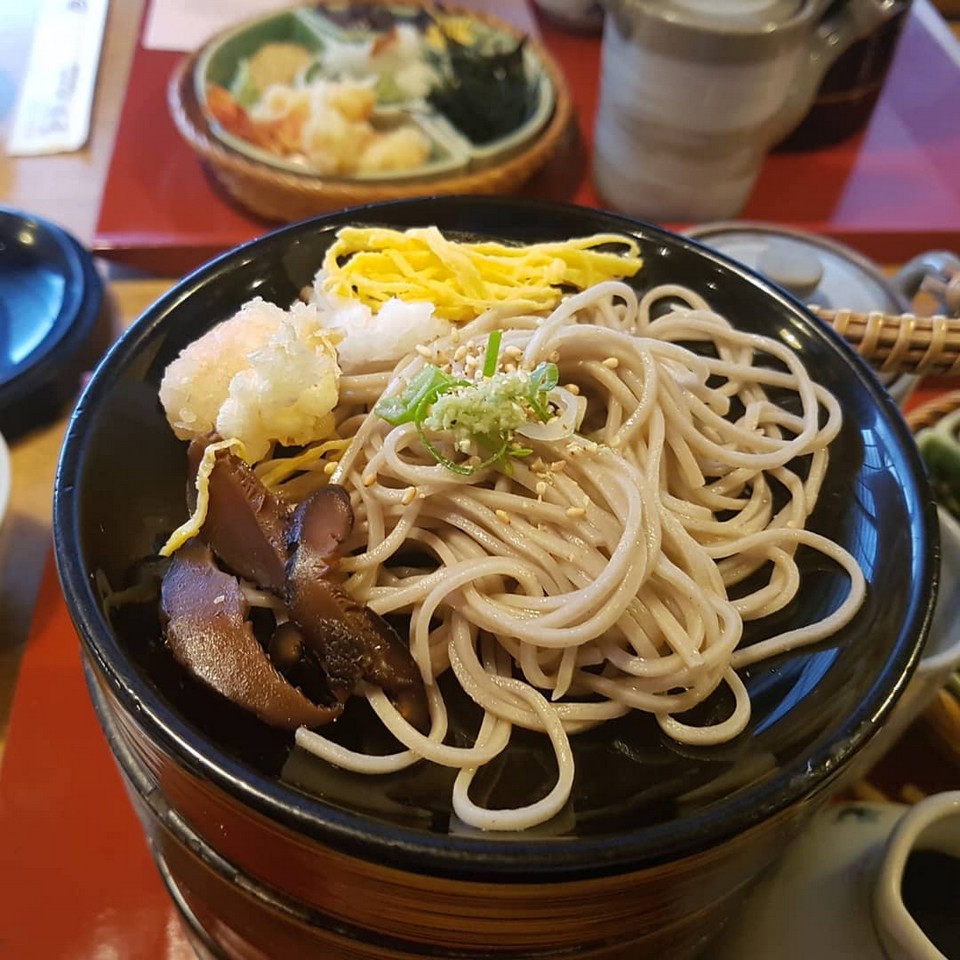
Each bowl of soba noodles costs between 500 – 1,000 yen for “economy class” and 1,000 – 1,500 yen for “business class” =)).
Honke Owariya
Address: Japan, 〒604-0841 Kyoto, Nakagyo Ward, Niomontsukinukecho, 322
Hours: 11AM–6PM
Food must eat in Kyoto: Chirimen Sansho
This dish is strange. It is delicious or not depends on the taste each person feels but the strange level is sure. You should try to eat when to go to Kyoto!
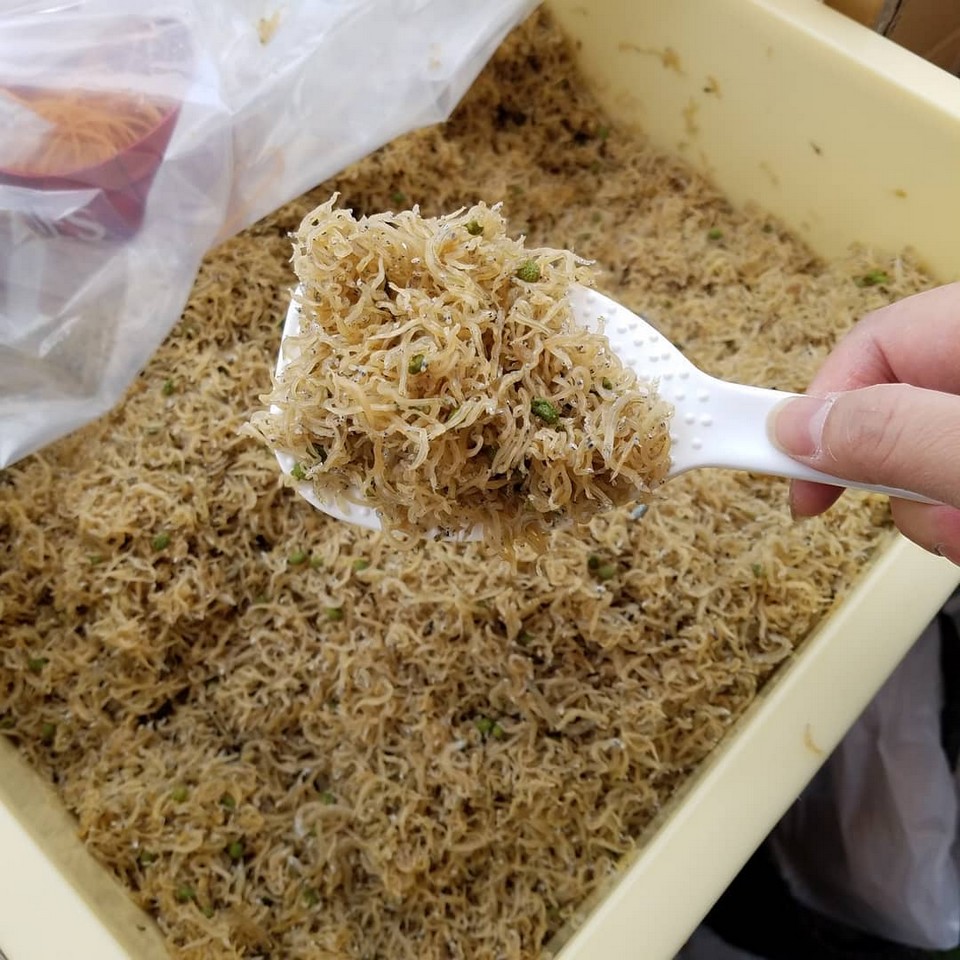
Chirimen Sansho is not like other famous dishes, it is a food specialized served with white rice, like pickles or pork floss (rousong) in our country. It is wrong if eat it as single, but combined with a fragrant rice bowl, it is very tasty.
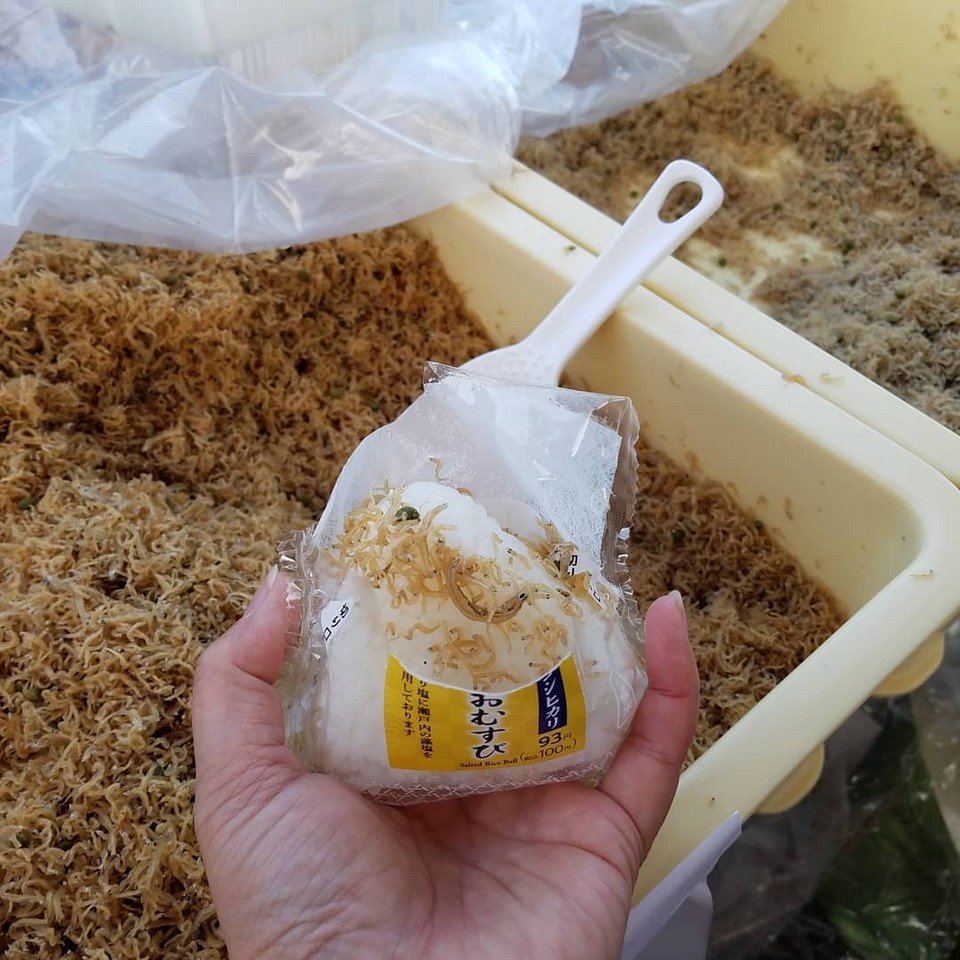
When I first looked at the rice bowl, I just saw Chirimen Sansho looked like dried shredded chicken sprinkled on rice! They are a small pinch of short yellow threads, each with two black dots. Asked the waiter, I were amazed when know those tiny black dots are the eyes and each short thread is a fish. Ohhhhhh, that’s really a trick =))))
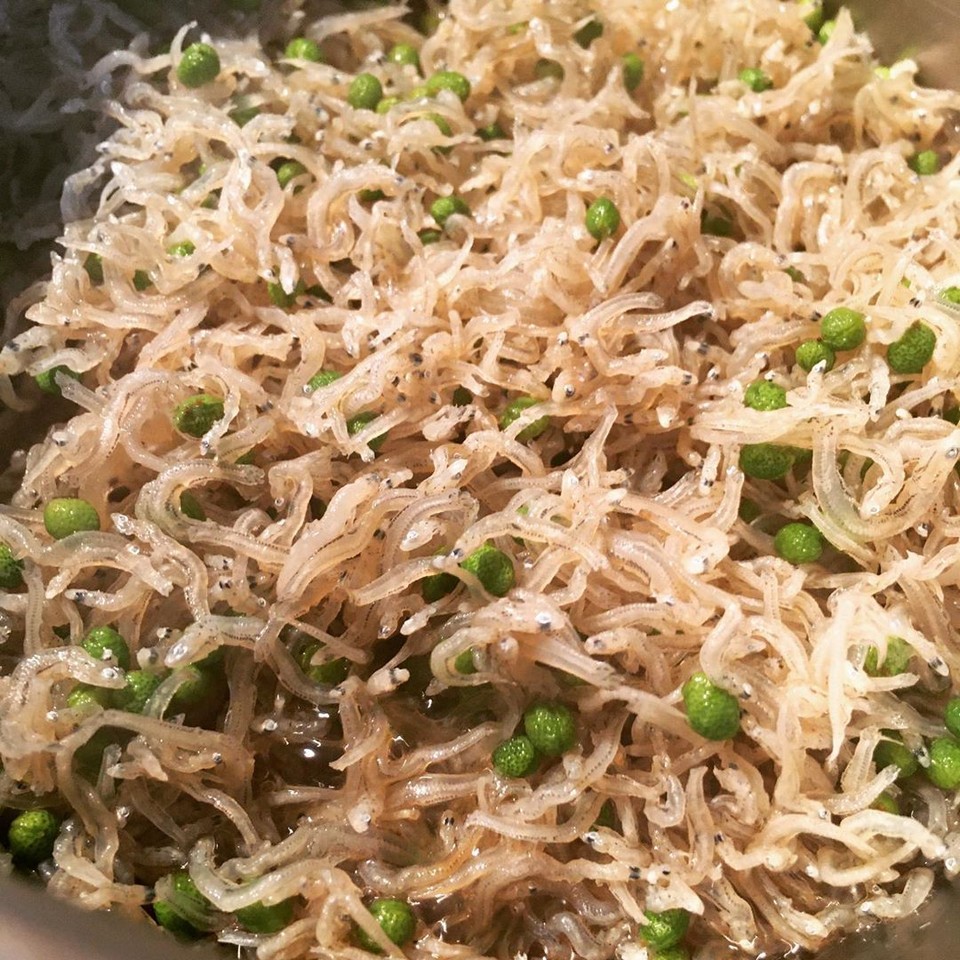
This is a fish called Chirimen which is caught by fishermen, then pre–processed and mixed with sansho pepper to produce a delicious dish with rice. Now I understand where the name “Chirimen Sansho” comes from =))
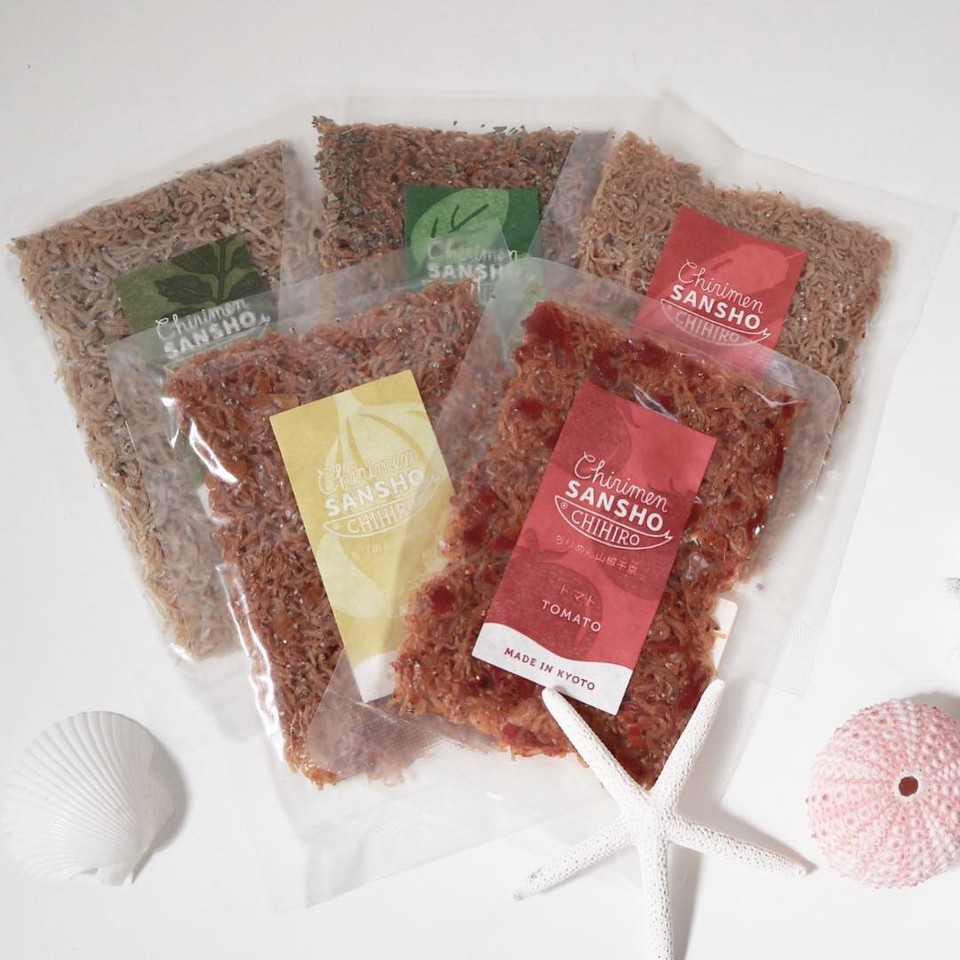
Must eat in Kyoto: Nama–fu
Coming to Japan and listening to “fu” “fu” when talking about food, you immediately knew people were talking about that tofu dish, hihi ^^

There’s no need to argue about the deliciousness of Kyoto’s tofu. The tofu is extremely aromatic, very firm, and has a little fat, a little greasy, and a sweet taste, thanks to the clean water source used for processing. It appears that making tofu has become an heirloom profession, so in addition to using machines, people continue to make tofu manually in order to preserve the long-standing traditional flavor.
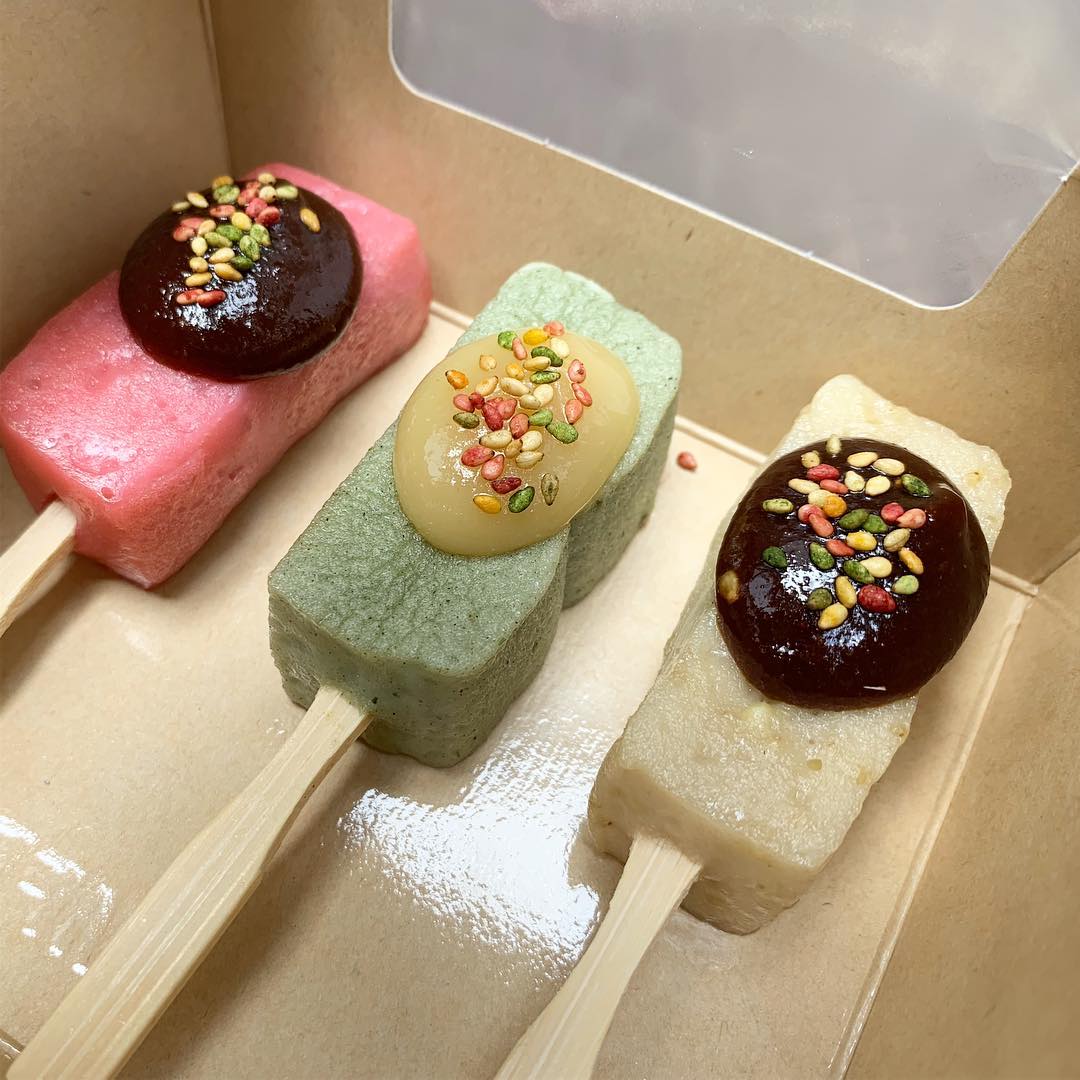
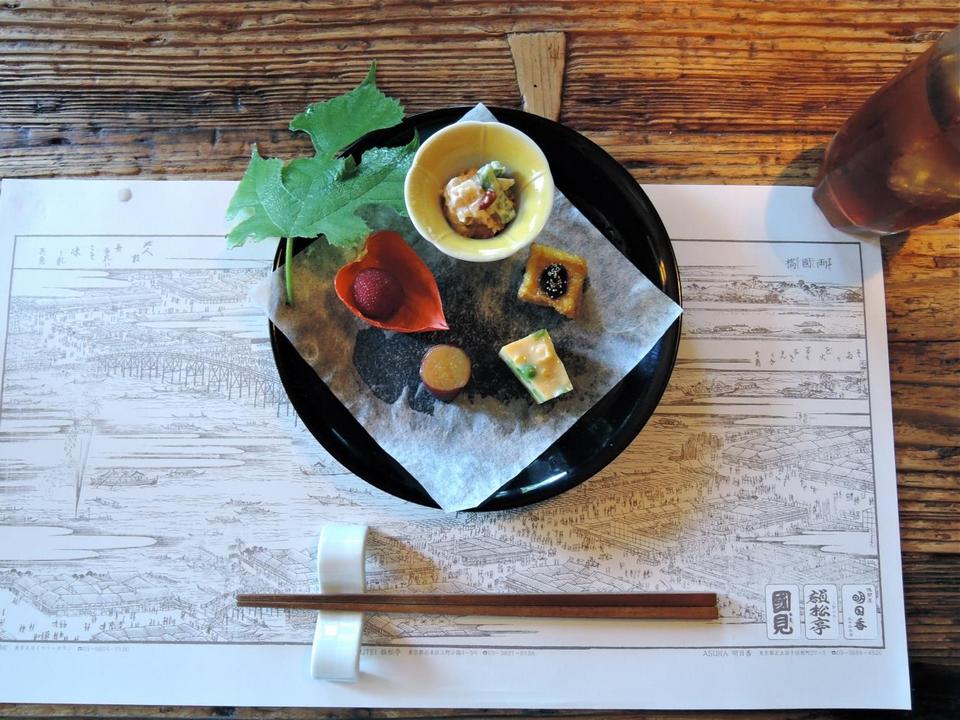
If you are a tofu fan, you definitely have to try this dish in Kyoto, the ancient capital bearing bold the traditional flavor, the tofu produced here is also the best in the whole country. In addition, if you are a little picky eaters, not like tofu much or for Western diners, then in Kyoto you also will be tried butter tofu too ^^.
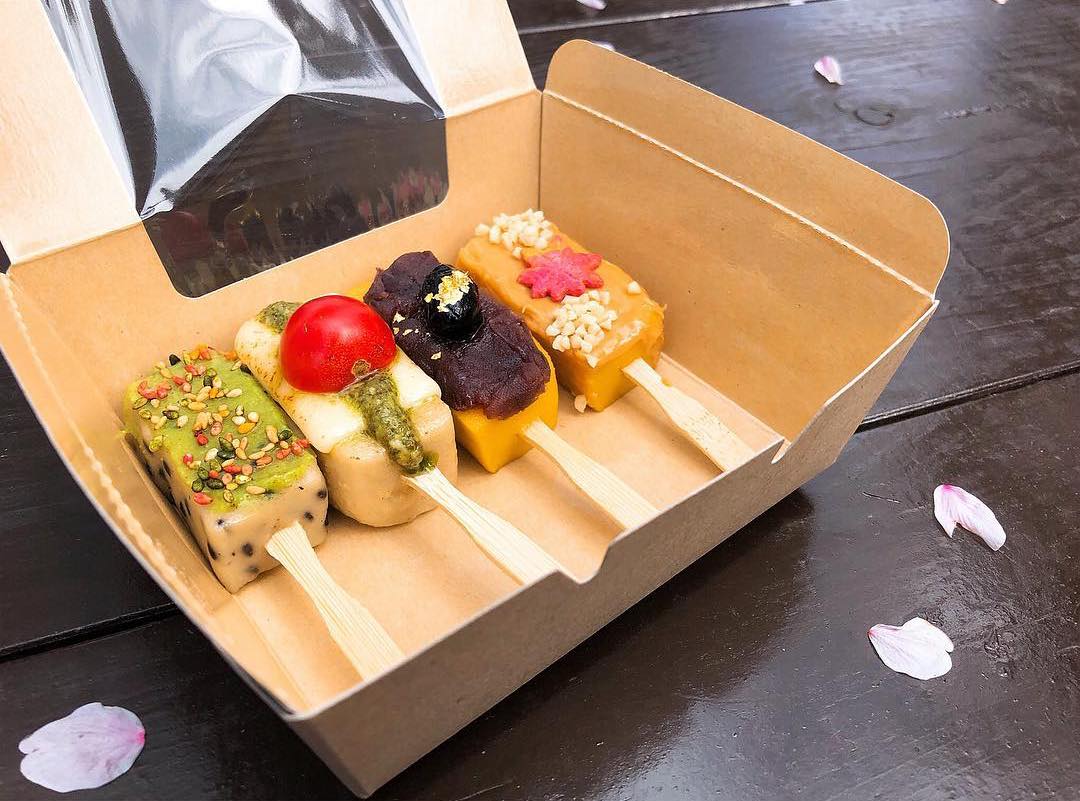
Must try food in Kyoto: Yatsuhashi
Yatsuhashi is the name of the most popular pastry in Kyoto. Although it’s just a type of pastry, but behind this cake is a historical story associated with the capital of Kyoto.
The Yatsuhashi was created by the hands of an Edo period musician. He made triangular-shaped cakes that resemble wontons in our country, with a red bean paste filling wrapped in a fragrant rice flour and cinnamon flour. This triangular shape was inspired by the staff on his Koto instrument, a traditional musical instrument associated with his love of music. Following his death, people decided to name this cake Yatsuhashi – his name 3 3 – in order to express their gratitude to this caring musician.
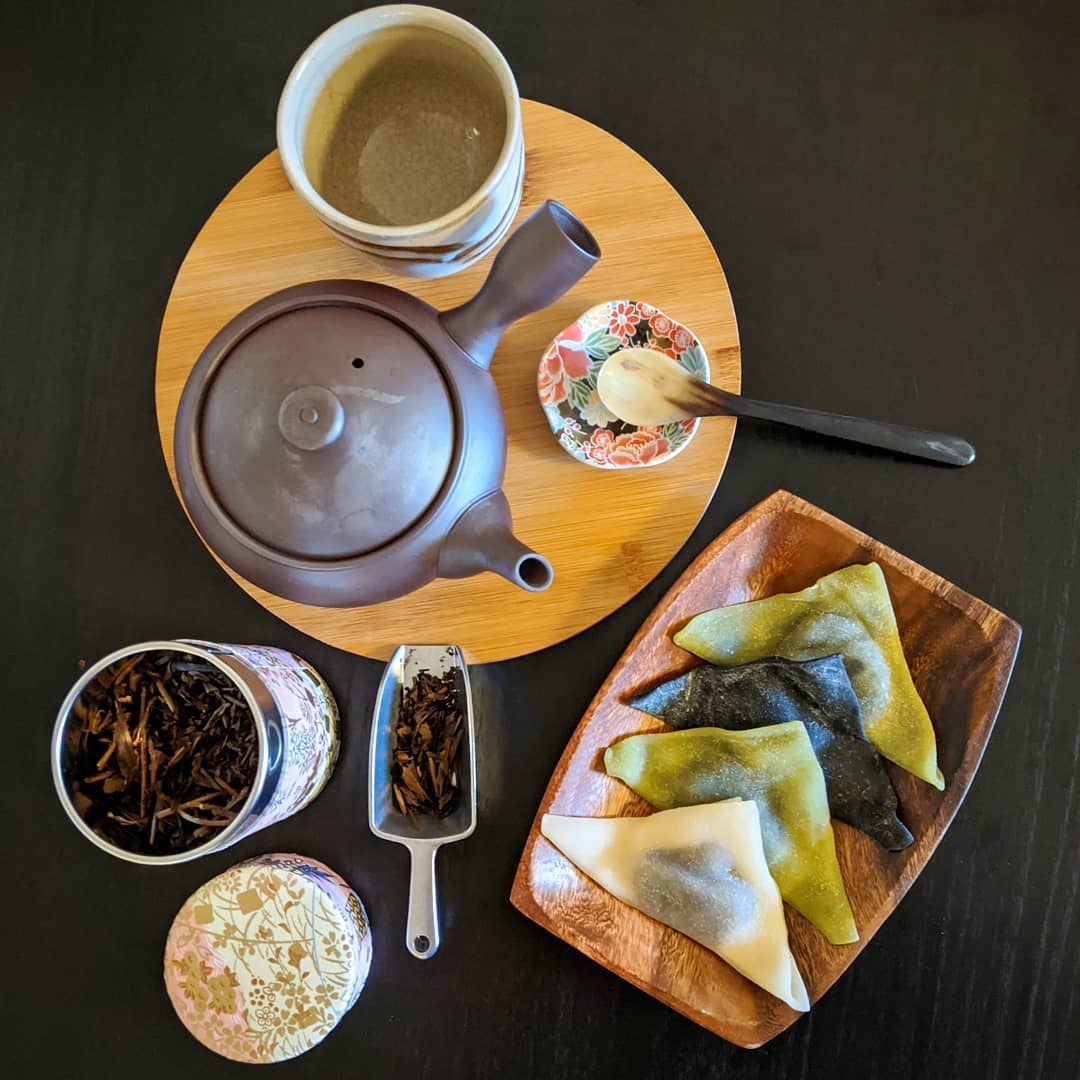
Today, glutinous flour, cinnamon powder, green tea powder, stewed red bean paste, sakura flowers, and other ingredients are used to make Yatsuhashi cakes. Yatsuhashi cakes are popular in Japan as a dessert or, more commonly, during tea ceremonies. Kyoto has the well-known Uji region, where the tea is regarded as one of the best in Japan, so sipping tea with this cake here is ideal. When eaten, the crust is flexible and soft, and the red bean paste inside is sweet and fragrant.
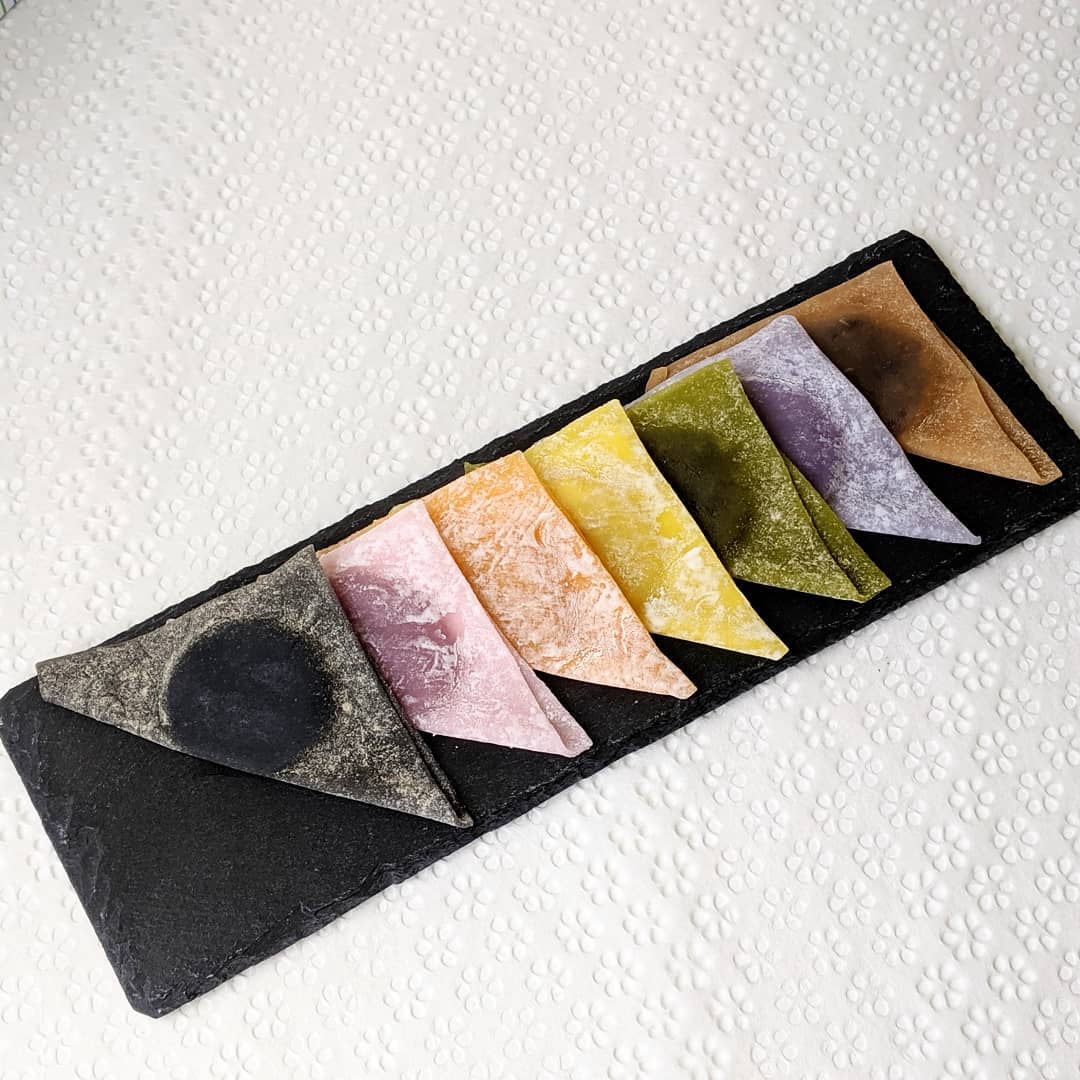
I love the color of the crust, which can be green, pink, yellow, or white… pastel colors, hihi. According to the chefs, the beautiful colors represent the colors of plants and flowers throughout the four seasons. The sweetness of the cake melts in your mouth when served with tea, symbolizing the harmony between nature and people. It’s so significant!
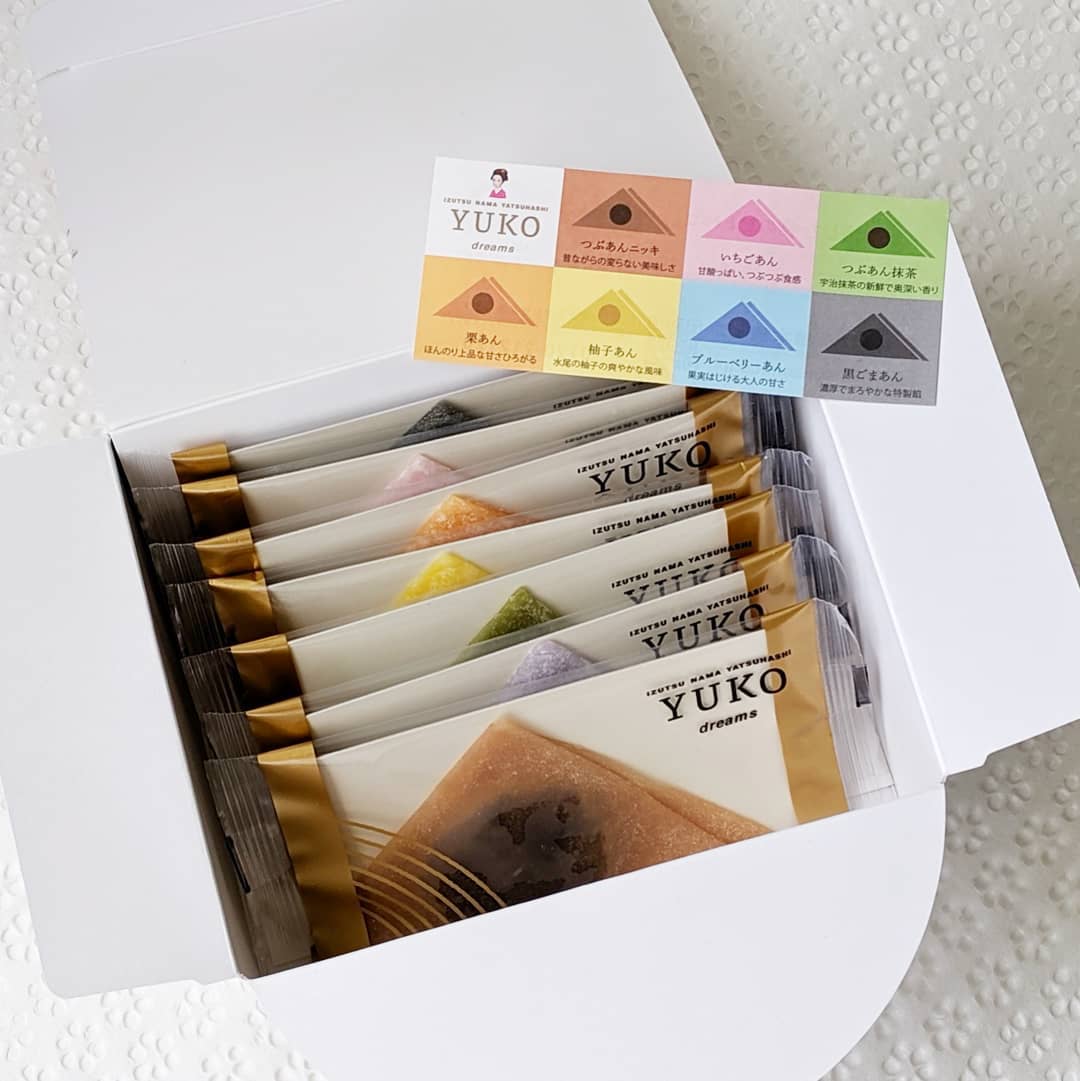
In any case, I continue to admire the cuisine of the Land of the Rising Sun! Each dish is exquisitely delicate and seems to contain both a cultural and human character here. This tasty cake is no exception. However, the most traditional Yatsuhashi can only be found in Kyoto, hihi.
Kyoto must try food: Snacks with Kyoto street cakes
Following, I would like to share with you 2 delicious and nutritious street foods with unique flavors of Kyoto. How should I say, coming to Kyoto and missing out on these 2 foods, there is only way … is buy air tickets again and take 1 more trip to Kyoto to eat them =))
No 1: Soy milk doughnuts
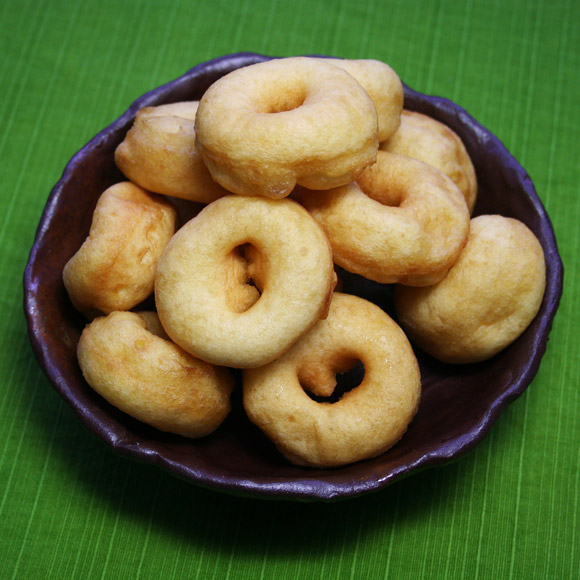
Just mentioning, haven’t eaten yet but smell the fatty and greasy here. But eating this cake doesn’t make you increase 1kg and you no need worry, hehe! If you eat it in the cold season in Kyoto, you will feel more satisfy.
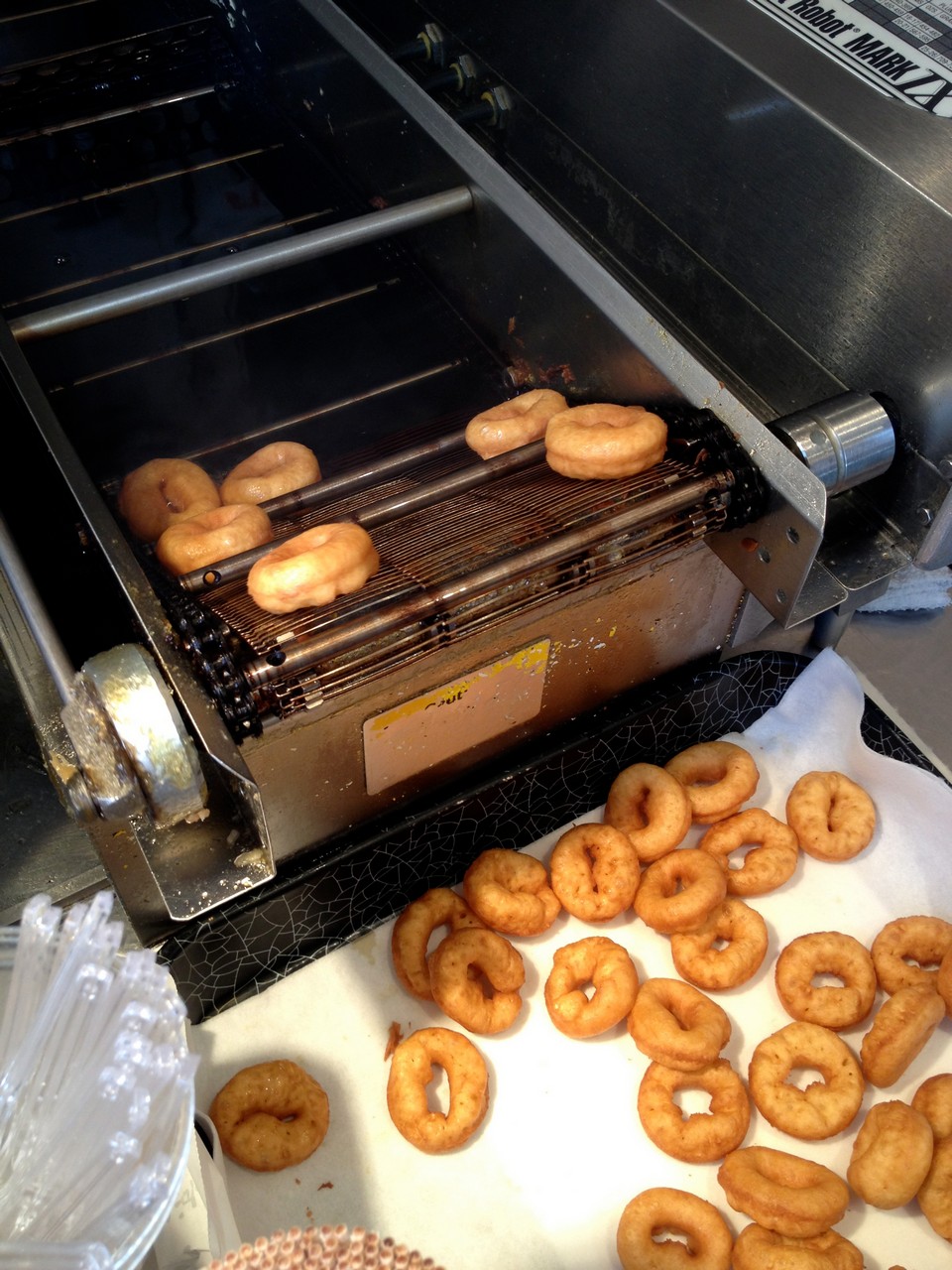
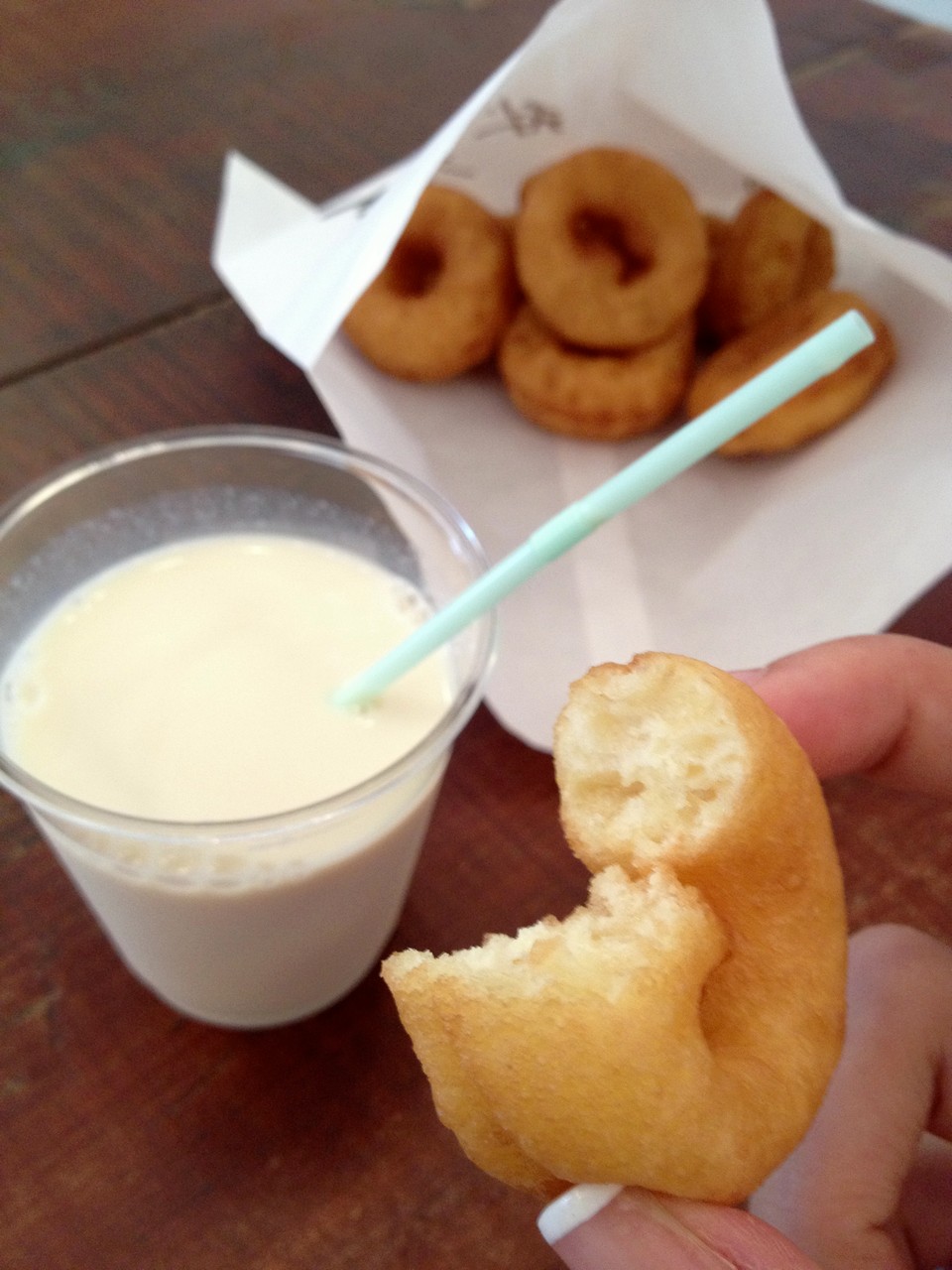
The crust on this cake is crunchy, and the inside is soft and chewy. The flavor of soy milk is aromatic and fatty; I told you that when you mention Kyoto, don’t forget the aromatic beans! But the good news is that it has a light sweet flavor rather than a strong sweet flavor, making it easy to eat.
This cake must be eaten while it is still warm; do not buy pre-packaged cakes as they cool and lose their essence! It is best to buy freshly scooped cakes straight from the oil pan. Feeling the crust of the cake melt in your mouth, followed by the aroma of Kyoto bean paste. It will, indeed, make you salivate!
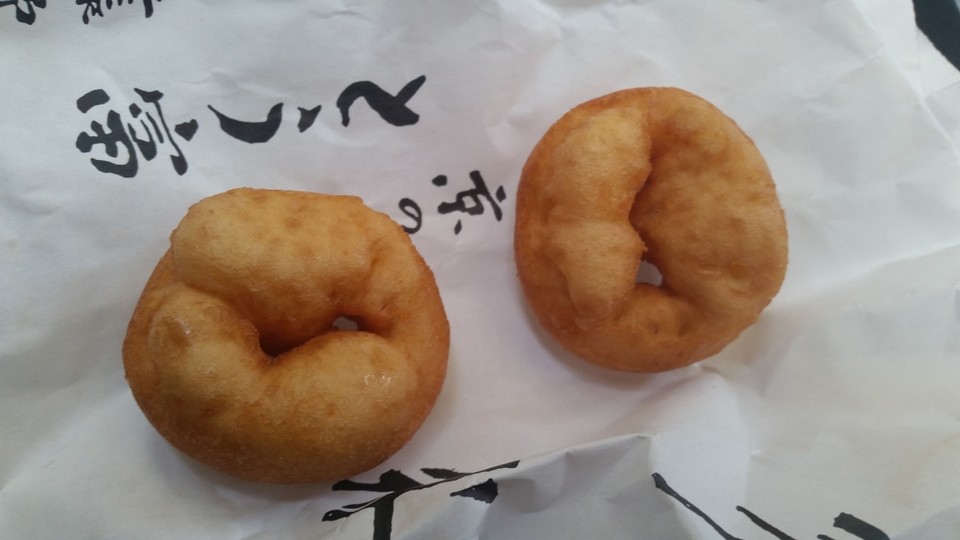
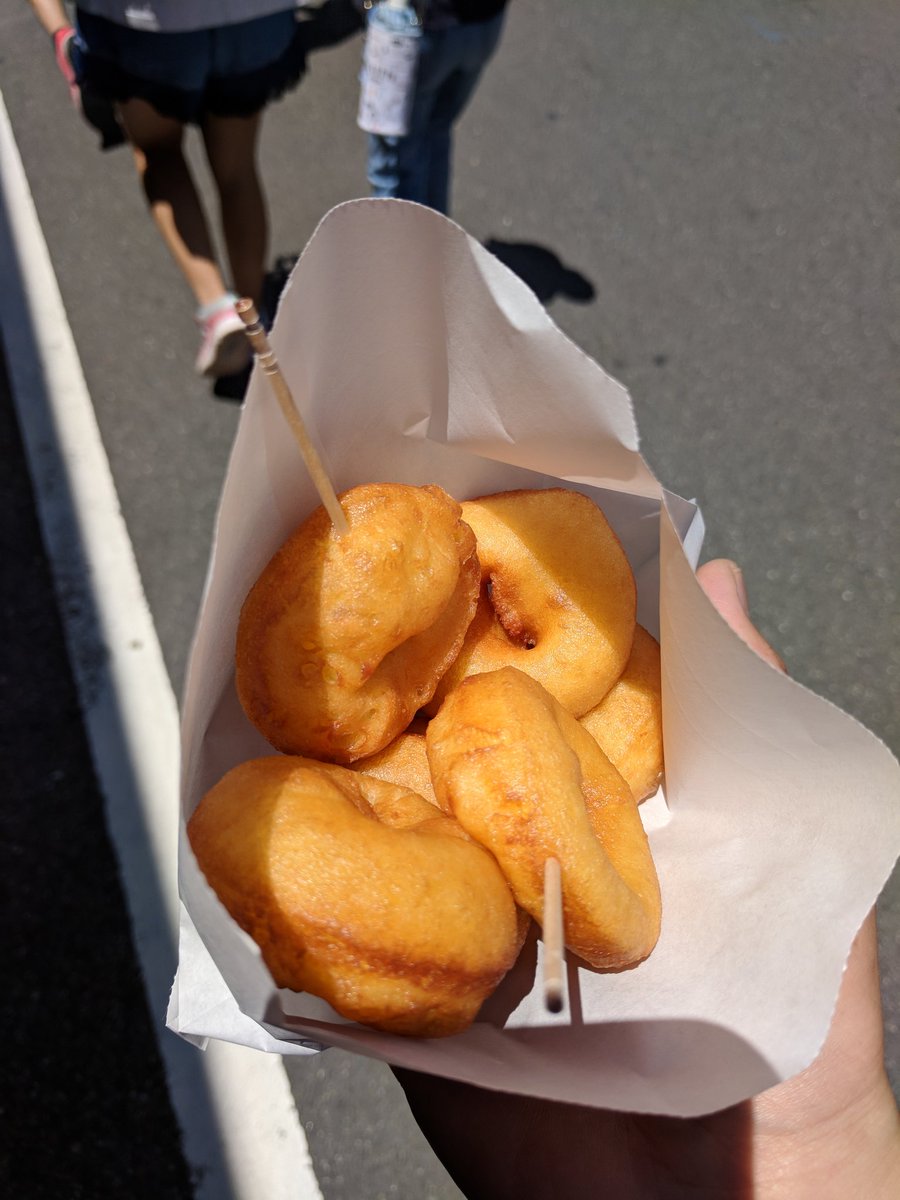
And you have to buy it at the Fujino shop at Nishiki Market is the best. Or at least you have to eat in Kyoto, but not elsewhere, if not you will eat fake doughnuts is probably =))
No 2: Thousand layer sponge cake
“In Vietnam, is there is no sponge cake or something but you spend much money to eat in Japan?”
Well, this is the complain question I received when I tell my friends that I go to Kyoto to eat … sponge cake! But that’s wrong, the sponge cake in Kyoto is not just a delicious anti-hunger pastry, it has long become a specialty with the name “thousand-layer sponge cake”.
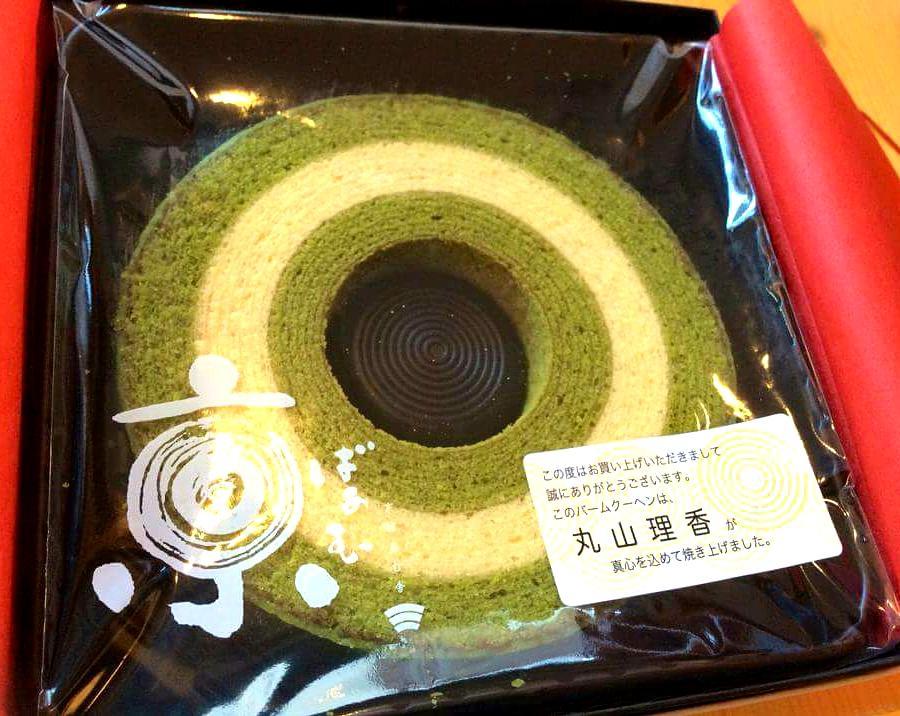
No joke, a thousand-layer sponge cake is a must-eat in Kyoto, the ancient capital. There are bakeries on every street and corner, especially in Gion’s old town. I don’t have enough time to think about whether it has enough 1000 layers or not, haha, because when the cake was handed over, I couldn’t resist the charm of the cake and wanted to take a bite right away. The layers of cake are rolled up like a conch shell, with alternating bright colors. Each layer has a distinct flavor, but when they are combined, the harmony is breathtaking.
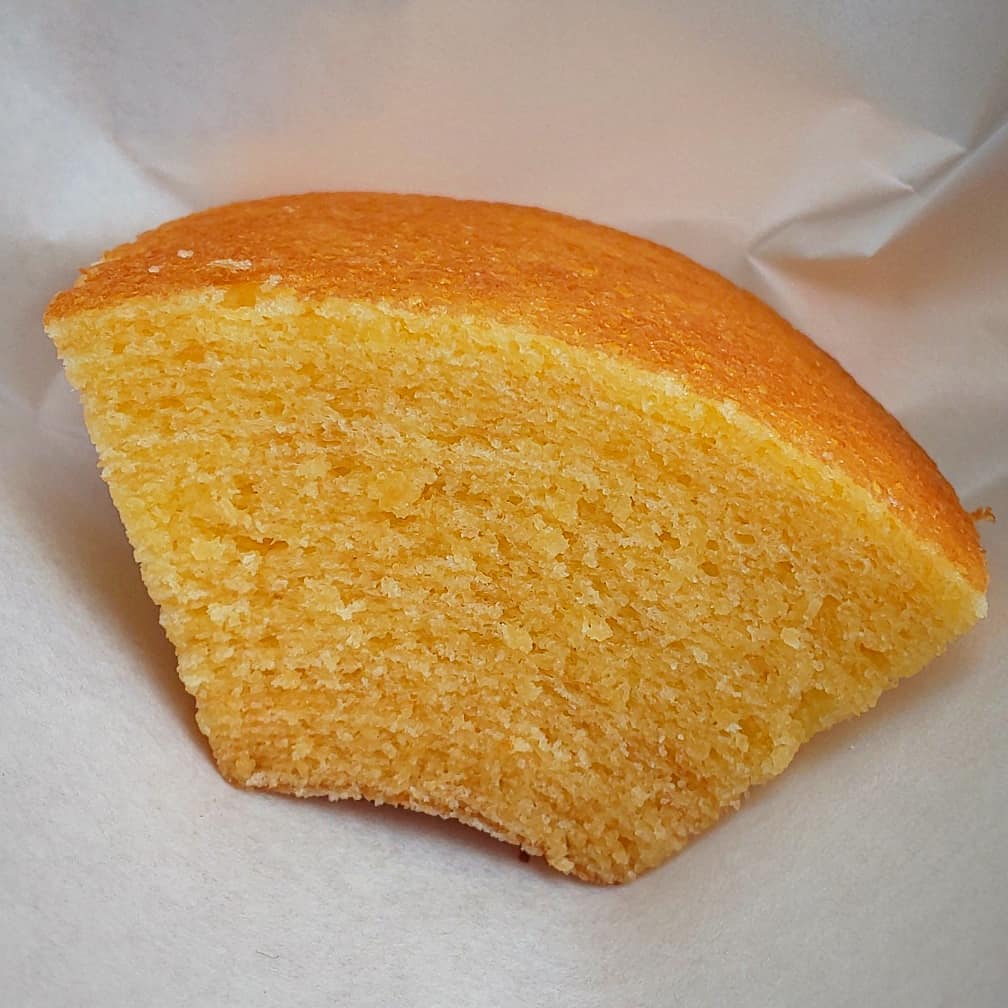
The cake has a light sweet flavor, the creamy layer of cream is fat but not greasy, the cake is soft and smooth, melts in your mouth, and the best part is that it does not choke me =)). As a result, I ate several cakes right away, which is why I didn’t dare to step on the scale, haha. I went to Japan on a budget, looking for cheap tickets and staying only in popular areas, so I could spend my money on food like this =)).
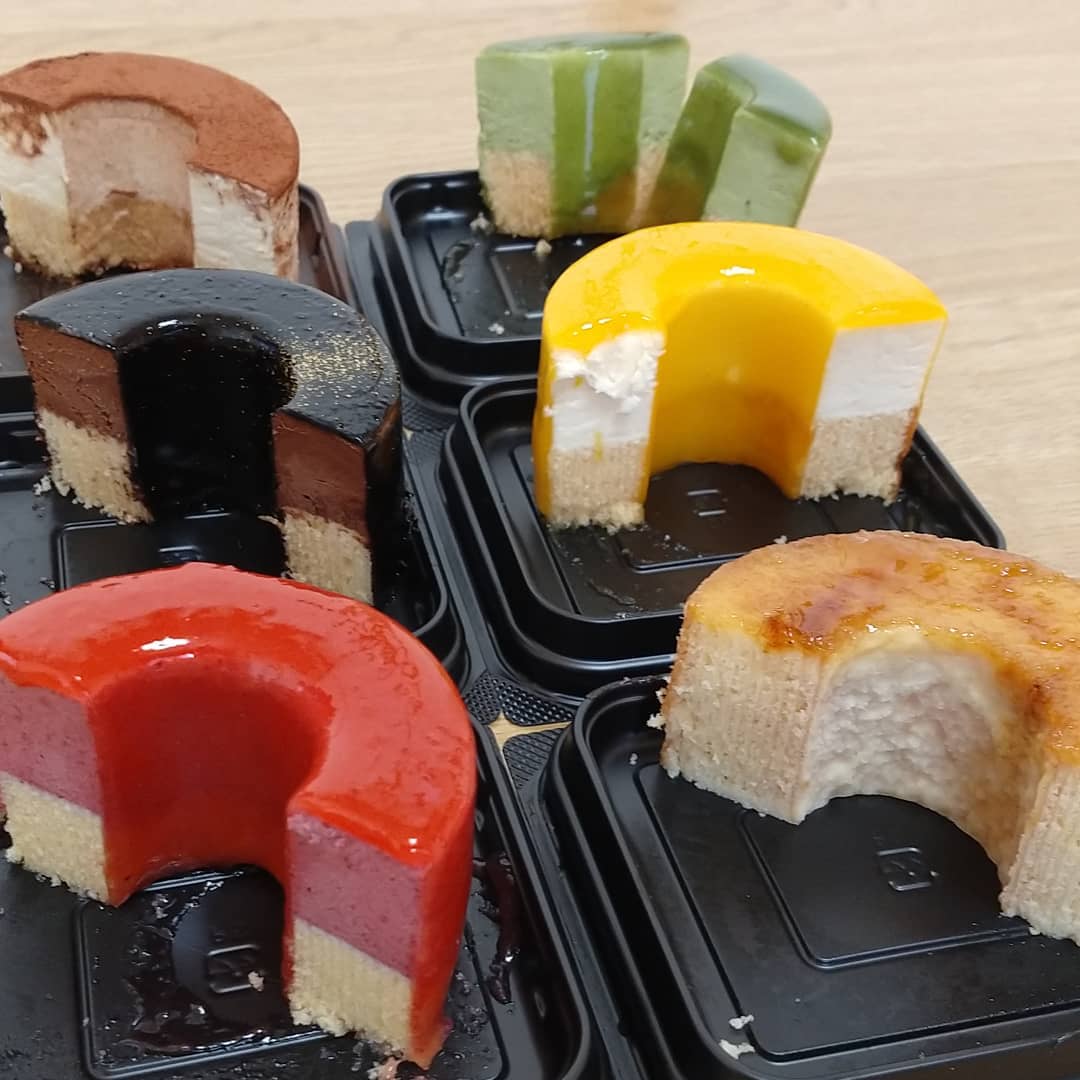
The cake when purchased take away will be wrapped in paper boxes, elegant design and eco-friendly, hihi. Each box of cakes costs 1,000 yen or more, if you can ensure safe transport when bring back home without distorting the box, buying thousand-layer sponge cakes in Kyoto as a gift is always the best thing!
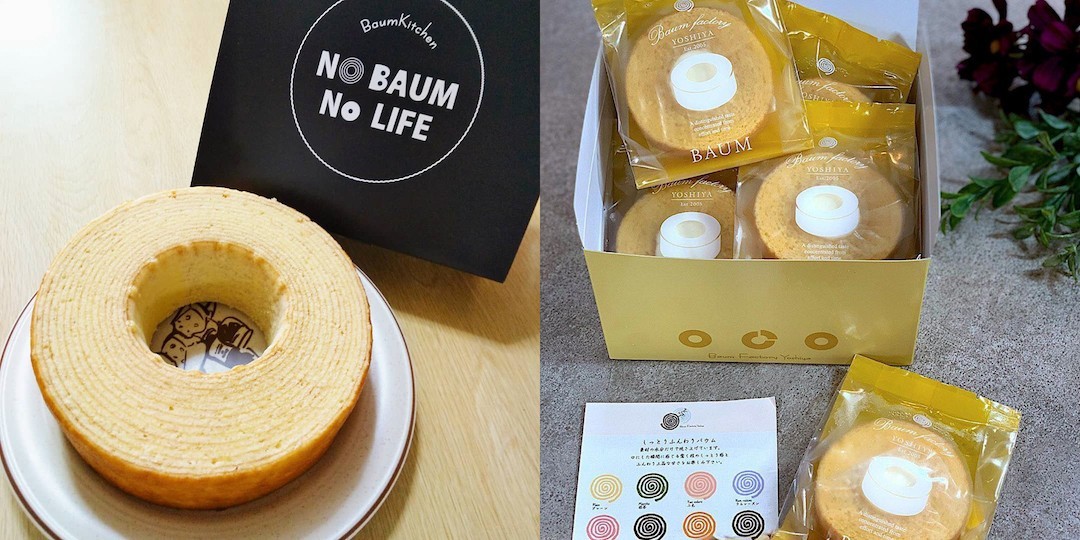
Each country has its own cuisine, especially the ancient capital of Kyoto with a respectable history, of course, the culinary culture is equally rich.
